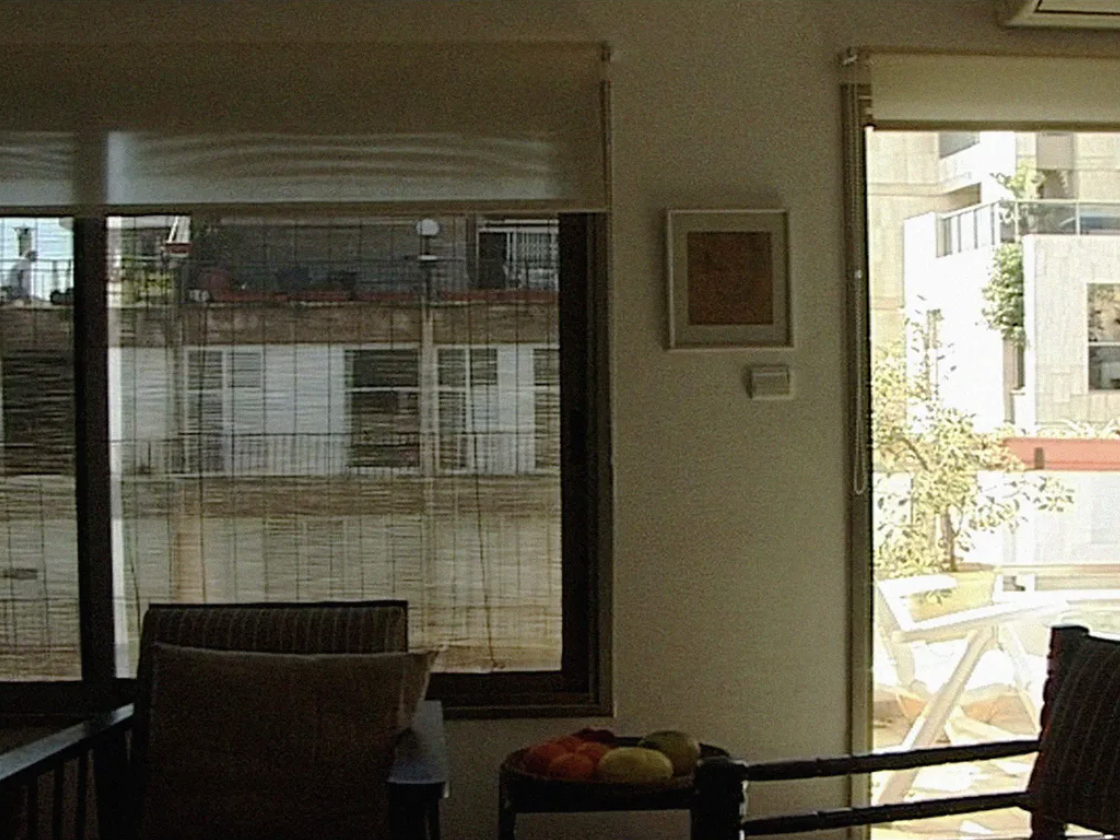
Akerman spends a month in Tel Aviv, in an apartment by the sea, contemplating her family, her Jewish identity and her childhood.
EN
“The film consists of a series of fixed, extended shots, some lasting several minutes, of these partial and partially obscured openings onto the outside world. (There is, notably, no reverse angle onto the interior of the apartment.) Through these veiled windows, we observe people going about their daily routines, most strikingly an elderly man who constantly rearranges his plants and paces his terrace like a caged lion. But as the film progresses we may find ourselves more aware of the changes in the light-angle, intensity, the way in which it's blocked by the opposite buildings and filtered by the semi-transparent blinds. The blinds, with their strong verticals (the cords that tie the slants) and narrow, delicate horizontals, structure the image and restructure it every time the camera changes position. One of the strongest influences on Akerman's work is minimalist avant-garde filmmaking. It's impossible to look at Là-bas and not recall the wall of windows and the changing light in Michael Snow's Wavelength, a connection reinforced by the qualities of the image produced by Akerman's low-end DV camera, particularly its flattening of the space so that the view from the window has the look of a late Cézanne where depth and surface become one (what Snow referred to as "the balancing of illusion and fact" in Cézanne and which he sought after in his own work). Akerman takes the aesthetic strategies of the minimalists and marries them to the humanist content that they suppressed.
Thus, when we look at the changing light in the room or we scan the horizon line on the nearby beach where Akerman occasionally sets up the camera, we also hear the voice of this invisible protagonist as she mulls over bits of family history or worries over her relationship with her landlady and how she will replace the things she's broken or eaten in the apartment. The quest for replacements will take her out onto the street, which we come to understand as something of a heroic act. Akerman leaves it to us to tie the clues and strands of her thought together-how, for example, her ruminations on the suicide of her aunt and of Amos Oz's mother connect to the report of a suicide bombing only a block away. Sometimes the sound of her voice mixes with that of fighter planes streaking across the sky, the most concrete sign that this is a war zone.
Is Là-bas a political film? Not in the sense that it takes sides or applies a political analysis to the Israeli-Palestinian conflict. As Akerman explained at a screening last month at New York's French Institute, the idea that Israel did one thing right and another thing wrong has become less compelling given the fact that it could in the near future be entirely wiped away by a nuclear weapon. "And that, she said, "would be terrible – at least it would for me."”
Amy Taubin1
- 1Amy Taubin, "Review: Là-bas," Film Comment, May 2007.

